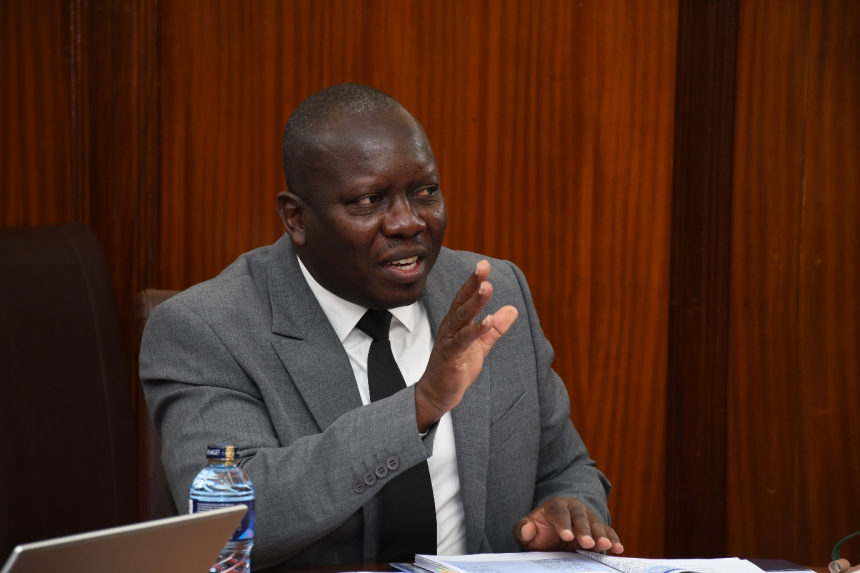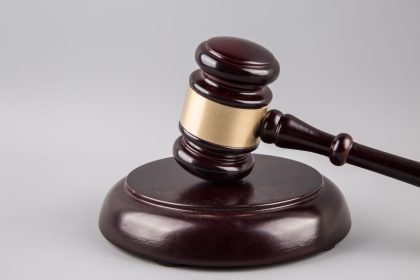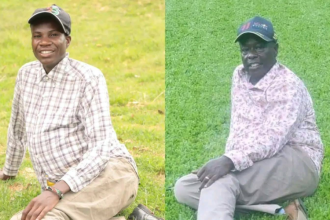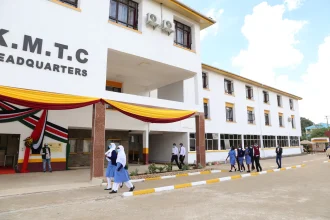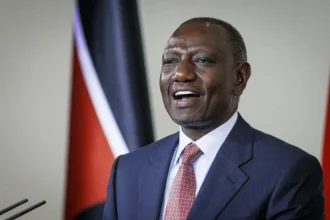The terrorism charges have sparked significant backlash from human rights advocates and civil society groups, who contend that the government is misusing anti-terrorism legislation to stifle genuine political opposition. In response to this criticism, Kenya’s Director of Public Prosecutions has defended the contentious decision to file terrorism charges against numerous individuals arrested during violent protests in June and July.
The prosecution argues that the actions taken during these demonstrations, which included attacks on government facilities, were not merely expressions of political dissent but rather deliberate attempts to undermine critical public services. In a comprehensive statement issued on Monday, the prosecution addressed the growing concerns surrounding the charges against at least 45 protesters, which arose from violent incidents during commemorative demonstrations on June 25, 2025.
This date marked the anniversary of significant youth-led anti-tax protests that had previously shaken the nation. Reports indicate that the protests in Kikuyu town escalated when demonstrators allegedly set fire to the Kikuyu Law Courts and other local government offices, highlighting the tensions surrounding the political climate in Kenya.
The prosecution office maintained that the Director of Public Prosecutions has approved and filed terrorism charges against 37 individuals arraigned at the Kahawa Law Courts on the outskirts of Nairobi, with additional suspects facing similar charges.
Preliminary investigations indicate that attacks on public offices, courts, police stations, and government personnel were not spontaneous demonstrations, but calculated and coordinated acts of violence, the ODPP statement read, emphasizing that such incidents aimed to cripple essential government operations, instil fear, and erode public trust in democratic institutions.
The prosecution cited Chief Justice Martha Koome’s assessment of the Kikuyu Law Courts incident, describing it as not merely an act perpetrated by criminal elements but an act of terrorism.
On June 25, 2025, a year after deadly protests swept across Kenya, thousands of youth took to the streets to signal their continued discontent with the authorities.
Sixteen people were killed, primarily by police bullets, according to the International Crisis Group.
The protests, which took place across 27 of Kenya’s 47 counties, were followed by even deadlier demonstrations on July 7.
At least 31 people died and more than 500 were arrested in anti-government protests across Kenya on Monday, the Kenya National Commission on Human Rights said following the July violence.
In Dagoretti and Kikuyu, mobs reportedly torched police stations, government offices, and law courts.
At the Dagoretti Police Post, five firearms were allegedly stolen, with one reportedly used in a robbery in Naivasha the next day, Interior Cabinet Secretary Kipchumba Murkomen revealed.
The scope of prosecutions continues to expand beyond the initial 37 terrorism charges.
Interior Cabinet Secretary Kipchumba Murkomen has confirmed that nearly 1,500 people have been arrested in connection with the widespread violence and destruction reported during protests on June 25 and July 7.
Since the June 25 commemorative protests, dozens of Kenyans have been charged with terrorism, starting with 37 suspects arrested on suspicion of torching the Kikuyu Law Courts and other government infrastructure during the June 25 protest.
Eight more were charged with terrorism a few days later.
The ODPP defended its approach by referencing Kenya’s Prevention of Terrorism Act, stating that such actions qualify as acts of terrorism when intended to cause serious disruption of essential services, intimidate the public or government, or create widespread fear through targeted destruction.
The prosecution office acknowledged public concerns about potential misuse of terrorism legislation but insisted all charges are based on available evidence and that each accused individual will receive fair trial, legal representation, and full access to due process in line with the Bill of Rights under the Constitution of Kenya.
The terrorism charges have drawn sharp criticism from human rights groups and civil society organizations, who argue that the government is using anti-terrorism laws to suppress legitimate political dissent.
The charges come against the backdrop of ongoing tensions between President William Ruto’s administration and youth-led protest movements that have challenged government policies since 2024.
In the days following the June demonstrations, the government compared them to an attempted coup, while protesters accused the authorities of paying armed vandals to discredit their movement.
The controversy highlights the delicate balance between maintaining public order and protecting constitutional rights to assembly and expression in Kenya’s evolving democratic landscape.
As the cases proceed through the courts, they are likely to test Kenya’s judicial system and set important precedents for how the country handles future political demonstrations and the application of its anti-terrorism legislation.

